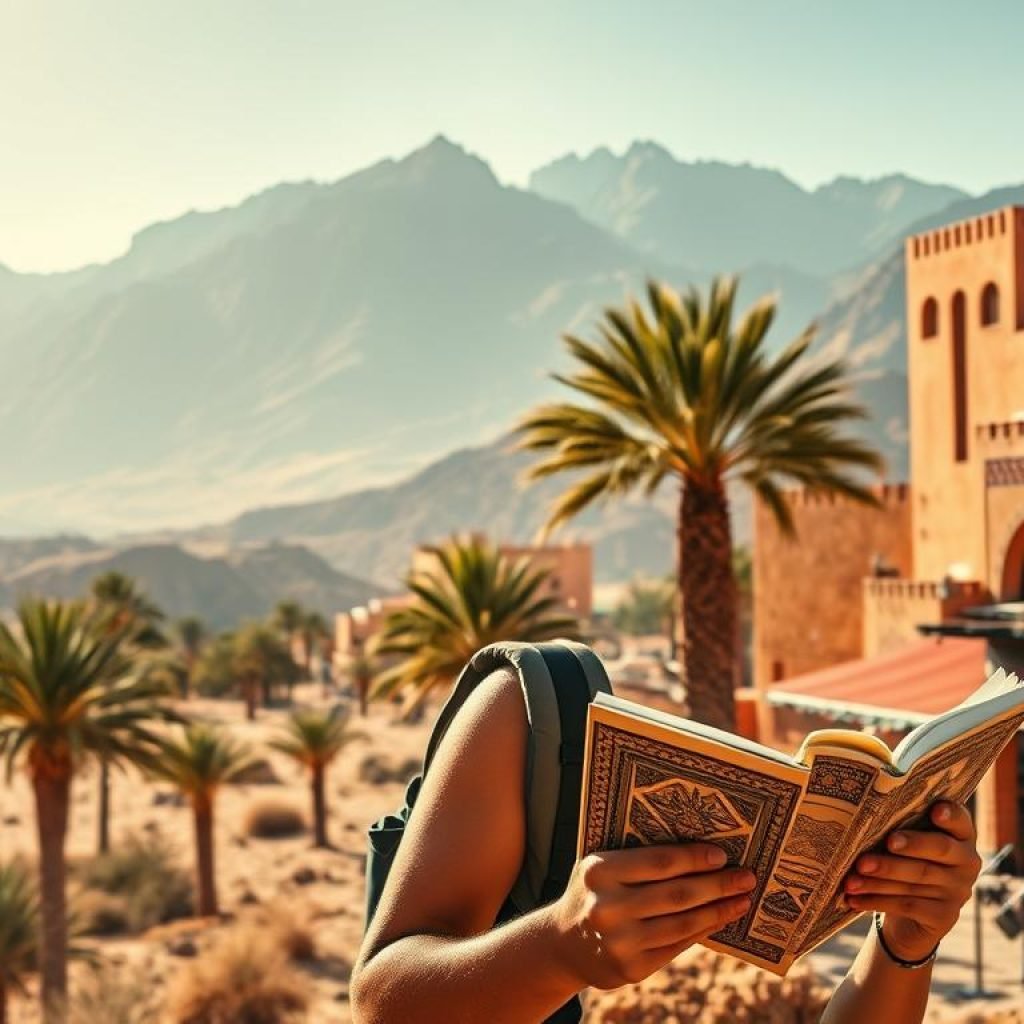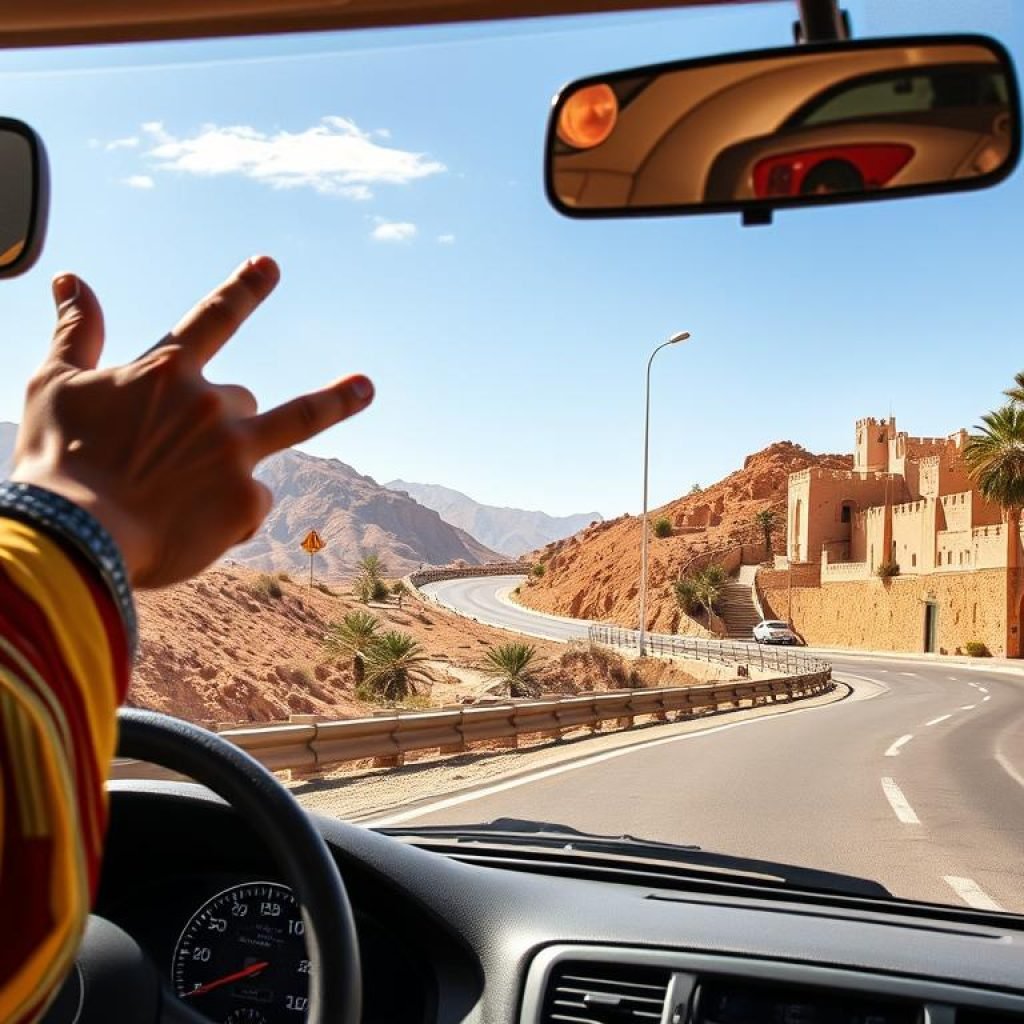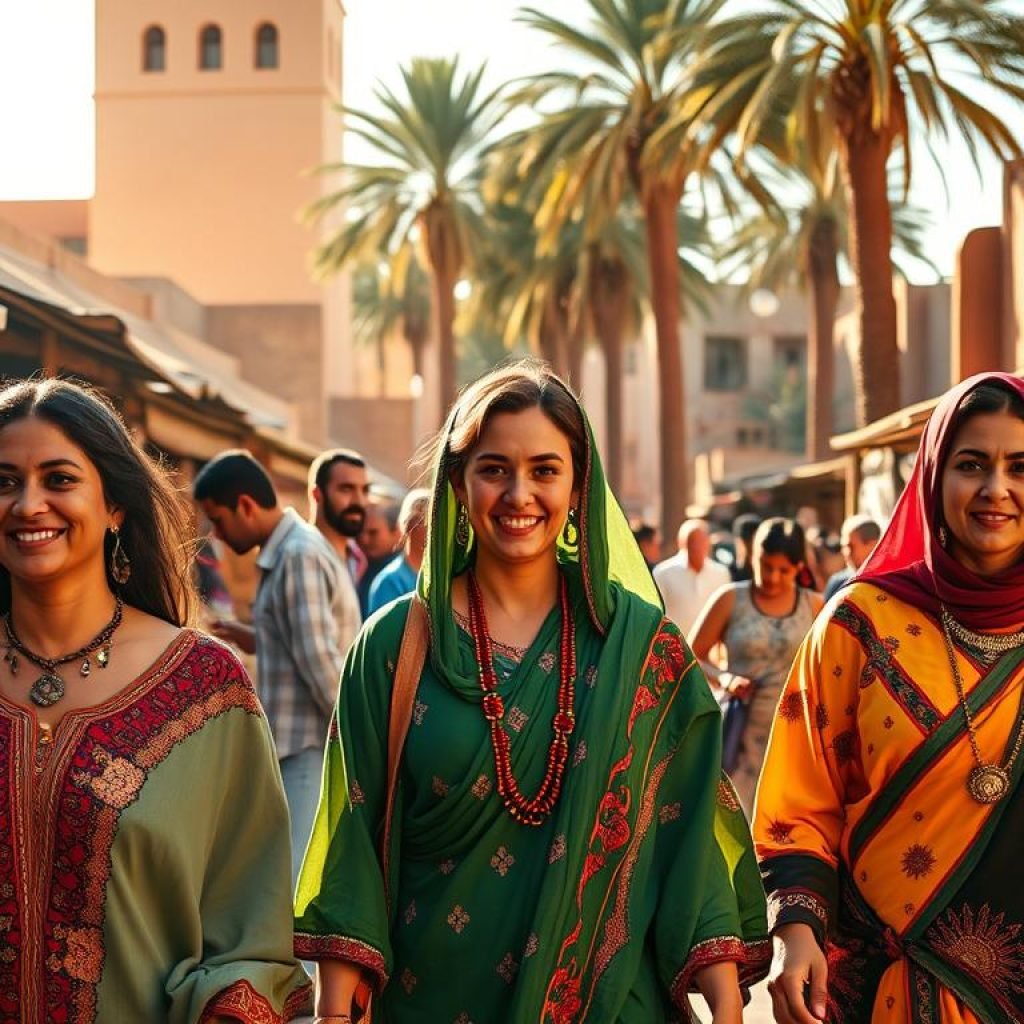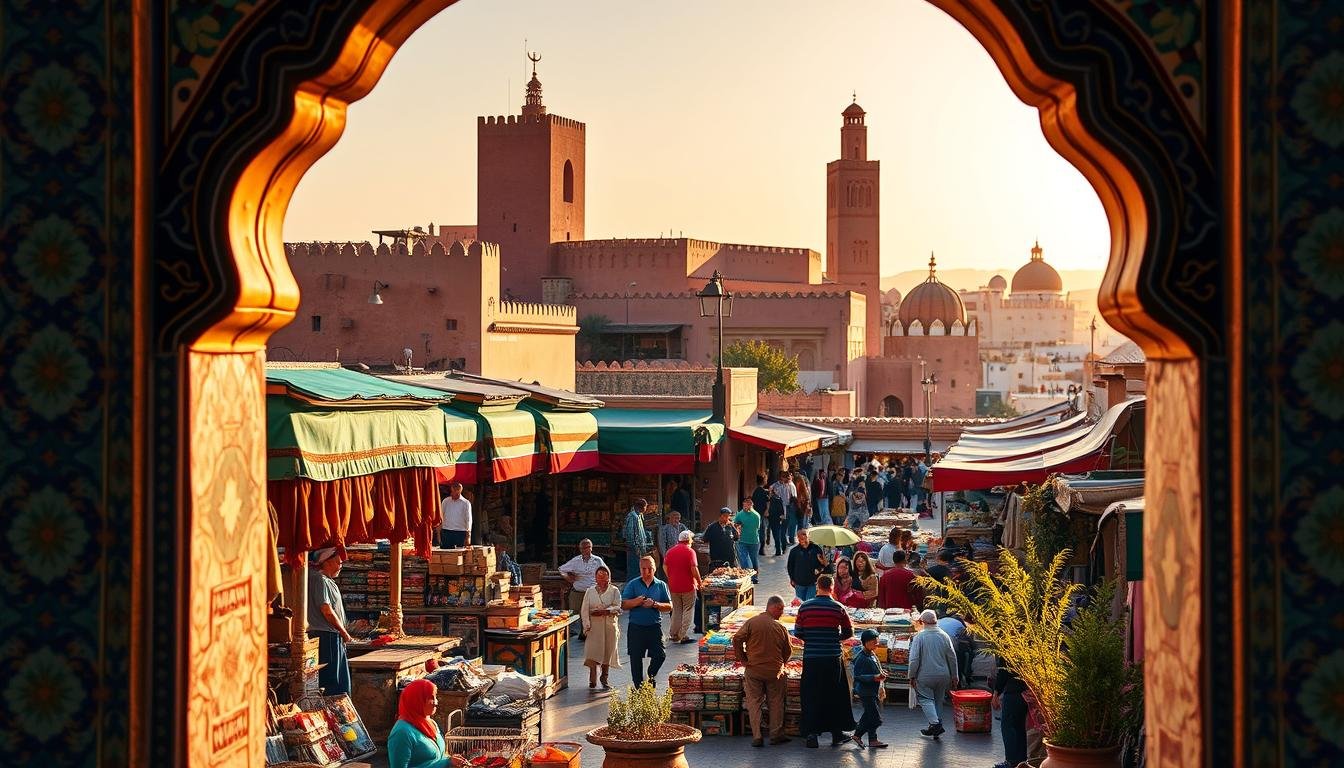Traveling to a new destination can be both exciting and overwhelming. Morocco, with its vibrant culture, stunning landscapes, and rich history, is a must-visit place for many. However, like any other country, it’s essential to be prepared and informed to ensure a smooth and secure trip.
Understanding the local environment is key. From bustling city streets to serene rural areas, each place has its unique challenges. Being aware of potential risks, such as petty crime or cultural nuances, can make all the difference. This guide aims to equip every traveler with practical advice to navigate Morocco confidently.
Whether you’re exploring ancient medinas or enjoying a quiet evening in a local restaurant, staying vigilant is crucial. Respecting local customs and laws not only enhances your experience but also ensures your well-being. Let’s dive into the essential steps to make your journey memorable for all the right reasons.
Key Takeaways
- Be aware of petty crime in crowded areas like medinas and markets.
- Respect local customs and dress modestly to blend in.
- Avoid walking alone at night, especially in unfamiliar places.
- Use ATMs in secure locations to prevent card fraud.
- Stay updated on travel advisories and regional risks.
Understanding Morocco’s Safety Landscape
Exploring a new destination requires awareness of its unique challenges. Morocco, a vibrant country, offers incredible experiences but also presents specific risks. Understanding these is key to a secure and enjoyable trip.
Overview of Regional Risks and Terrorism
Morocco has a moderate crime index, but certain areas require extra caution. Crowded urban centers, transport hubs, and government buildings are potential targets for indiscriminate attacks. Staying updated with local news and government advisories is crucial.
Travelers should avoid regions near the borders with Algeria and Mauritania due to heightened terrorism risks. Security measures at hotels and tourist sites are robust, but vigilance is always recommended.
Legal and Cultural Considerations
Moroccan laws differ from Western legal systems. Public displays of affection and certain behaviors can lead to legal repercussions. Dress modestly, especially in conservative areas, to show respect for local culture.
During Ramadan, visitors should be mindful of religious practices. Avoid eating or drinking in public during daylight hours. Respecting these norms enhances your experience and ensures smoother interactions.
| Region | Risk Level | Precautions |
|---|---|---|
| Urban Centers | Moderate | Avoid crowded areas at night, stay alert in markets |
| Border Areas | High | Travel with caution, follow government advisories |
| Tourist Sites | Low | Use secure transportation, respect local customs |
Essential “Morocco Safety Tips”
Being prepared is the first step to a smooth travel experience. In any destination, understanding common risks and how to avoid them can make your trip more enjoyable. This section focuses on practical advice to help you stay secure while exploring.

Crime Prevention and Avoiding Scams
Travelers should remain vigilant, especially in crowded areas like markets and medinas. Petty crimes such as pickpocketing and bag-snatching are common in busy tourist spots. Here are some tips to stay safe:
- Avoid carrying large amounts of cash or valuables in public.
- Be cautious of overly friendly strangers offering unsolicited help or services.
- Verify the credentials of tour guides to avoid scams.
- Stay alert in crowded places and keep your belongings secure.
Protecting Your Documents and Valuables
Your passport and other important documents are essential for a hassle-free trip. Losing them can lead to significant delays and stress. Follow these steps to keep them safe:
- Use a money belt or hidden pouch to store your passport and cash.
- Keep digital copies of your documents in a secure cloud storage service.
- Store valuables in your hotel safe when not in use.
- Be mindful of your surroundings when using ATMs or handling credit cards.
For more detailed safety tips for traveling in Morocco, check out this comprehensive guide. Staying informed and alert will help you enjoy your journey with peace of mind.
Navigating Cities, Markets, and Tourist Areas Safely
Navigating busy urban areas requires awareness and preparation. Cities like Marrakech and Casablanca are vibrant but can be overwhelming for first-time visitors. Staying alert in these bustling environments is key to a smooth experience.
Crowded markets and medinas are iconic but come with challenges. Opportunistic crime, such as pickpocketing, is common in these areas. Keep your belongings secure and avoid displaying valuables openly.
Local security measures, including visible law enforcement, provide reassurance. However, it’s essential to remain vigilant. Be cautious of overly friendly strangers offering unsolicited help or services.
Here are some practical steps to stay safe:
- Use a money belt or hidden pouch for your passport and cash.
- Stay aware of your surroundings, especially in high-traffic tourist spots.
- Verify the credentials of guides before hiring their services.
For more detailed advice on staying secure in Morocco, check out this comprehensive guide. By following these tips, you can enjoy the vibrant culture while minimizing risks.
Road and Transportation Safety in Morocco
Getting around in a foreign country can be both exciting and challenging. Whether you’re driving or using public transport, understanding local rules and practices is essential for a smooth journey. This section provides practical advice to help you navigate roads and transportation securely.

Driving Guidelines and License Requirements
If you plan to drive in Morocco, you’ll need a valid international driving permit (1968 version) alongside your national license. This is mandatory for all foreign drivers. Additionally, obtaining a green card from your insurer is crucial as proof of minimum coverage.
Driving conditions can vary widely, especially on secondary routes and mountain roads. Poor lighting and hazardous weather can make nighttime driving particularly challenging. Always plan your route in advance and avoid driving in heavy traffic if possible.
- Carry your driving permit and insurance documents at all times.
- Be cautious of local driving styles, which can be unpredictable.
- Stick to main roads when traveling long distances.
Using Taxis and Public Transportation Securely
Taxis are a common way to get around cities, but it’s important to use licensed services. Unregulated cabs can pose risks, including overcharging or unsafe driving practices. Always agree on the fare before starting your journey to avoid disputes.
Public transportation, such as buses and trains, is generally safe and reliable for intercity travel. However, remain vigilant in crowded areas to protect your belongings. Here are some tips for using public transport:
- Verify the credentials of taxi drivers before getting in.
- Keep valuables secure and out of sight in crowded buses or trains.
- Use official taxi stands or apps for safer options.
By following these guidelines, you can ensure a secure and enjoyable travel experience in Morocco. Always stay informed about local traffic patterns and evacuation procedures in case of emergencies.
Staying Secure During Outdoor Adventures and Nighttime
Exploring the great outdoors in a foreign country can be thrilling but requires preparation. From the Atlas Mountains to the Sahara Desert, Morocco offers stunning landscapes for adventure seekers. However, rural and outdoor travel comes with unique challenges that demand careful planning.
Precautions for Hiking and Rural Travel
Hiking in mountainous or desert areas requires extra caution. Always research trails in advance and hire professional guides. They provide valuable local knowledge and ensure your safety during the journey.
Carry sufficient supplies, especially water, as dehydration can be a serious risk. Inform someone about your route and expected return time. This ensures help can be sent if you encounter difficulties.
Travel insurance is essential for outdoor activities. Choose a policy that covers adventure travel and emergency evacuations. This provides peace of mind for every traveler.
Nighttime in remote areas can be particularly risky. Poor lighting and limited access to help increase vulnerabilities. Stick to well-lit paths and avoid traveling alone after dark.
In case of an emergency, stay calm and use your phone to call for assistance. If no signal is available, seek help from nearby villages or tourist spots. Preparation and awareness are your best tools for a safe adventure.
| Activity | Risk Level | Precautions |
|---|---|---|
| Hiking in Mountains | Moderate | Hire guides, carry water, stay on trails |
| Desert Exploration | High | Avoid midday heat, use sunscreen, travel in groups |
| Nighttime Travel | High | Stay in well-lit areas, avoid remote locations |
Cultural Awareness and Local Laws for Safe Travel
Respecting traditions can make your journey more enjoyable and secure. In this vibrant country, understanding and adhering to local customs is essential. From dress codes to social norms, being culturally aware ensures a harmonious visit.
Adhering to Local Customs and Dress Codes
Dressing modestly is a sign of respect in many parts of the country. In cities like Marrakech and Fez, covering shoulders and knees is recommended, especially near religious sites. Women may also consider carrying a scarf for added modesty.
During Ramadan, visitors should avoid eating or drinking in public during daylight hours. This shows respect for local religious practices. Small gestures like these can make a big difference in how you’re perceived.
Respecting Religious and Social Norms
Public displays of affection are frowned upon and can lead to legal issues. It’s best to avoid such behavior to stay out of trouble. Additionally, non-Muslims are generally not allowed to enter mosques, except for a few exceptions like the Hassan II Mosque in Casablanca.
When interacting with locals, a polite and respectful attitude goes a long way. Greetings are important, and taking the time to learn a few basic phrases in Arabic can enhance your experience. Here are some practical tips:
- Dress modestly, especially in rural areas.
- Be mindful of religious practices during Ramadan.
- Avoid public displays of affection to respect local norms.
By following these guidelines, you’ll not only ensure your security but also gain a deeper appreciation for the rich culture of this fascinating country.
Women Travelers: Addressing Unique Safety Concerns
Traveling as a woman in a foreign country can bring unique challenges, especially in culturally diverse regions. In Morocco, female travelers may encounter situations like street harassment or unwanted attention. Being prepared and informed can help you navigate these experiences confidently.

Dealing with Harassment and Unwanted Attention
Verbal harassment, such as catcalling, is relatively common in busy urban areas. While most incidents remain verbal, it’s essential to stay vigilant. Traveling in groups or with a trusted person can reduce the likelihood of such encounters.
Dressing modestly is another effective way to blend in and minimize unwanted attention. Loose-fitting clothing that covers shoulders and knees is recommended, especially in conservative regions. This simple step can make a significant difference in how you’re perceived.
Here are some practical strategies to stay secure:
- Choose accommodations with strong security measures, such as 24-hour reception and secure access.
- Carry a hotel card with contact information in case you need assistance.
- Plan safe routes, especially when traveling at night, and avoid isolated areas.
Staying aware of your surroundings is crucial. If you feel uncomfortable, trust your instincts and seek help from nearby travelers or local authorities. By taking these proactive measures, you can focus on enjoying your journey with peace of mind.
Conclusion
Planning your journey with awareness ensures a smooth and enjoyable experience. This guide has outlined essential steps to stay secure in various scenarios, from bustling cities to remote outdoor adventures. Staying informed through reliable channels, such as government advisories, is crucial for navigating any country confidently.
By following these guidelines, you can significantly reduce risks related to crime, harassment, and hazards. Practical precautions, like carrying sufficient water and respecting local customs, enhance your experience. Remember, staying safe is a continuous process that requires vigilance and preparation.
While challenges exist, taking proactive measures makes this vibrant destination a rewarding and navigable place for every person. With the right approach, you can focus on creating unforgettable memories during your travel.




Comment (0)